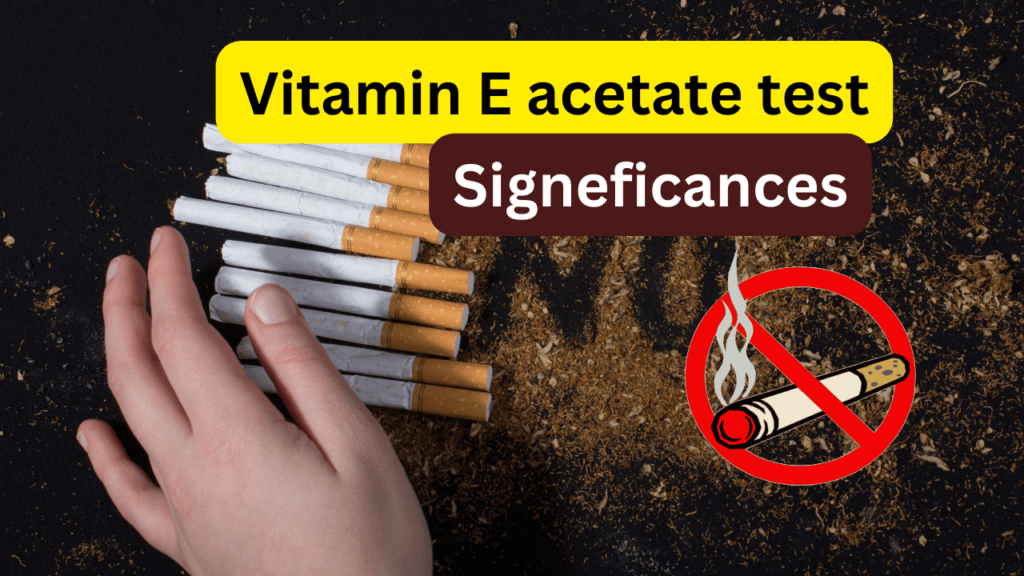Vitamin E acetate was once considered a harmless additive for its potential role in severe lung injuries.

Here you will learn about the significance of the vitamin E acetate test, its methodology, and its crucial role in safeguarding public health.
What is vitamin E acetate?
Vitamin E acetate, when inhaled, has been linked to cases of E-cigarette, or Vaping, Product Use-Associated Lung Injury (EVALI). The oily substance, often used as a thickening agent in vaping products containing THC, posed a significant health risk.
EVALI manifested as respiratory distress, with symptoms ranging from cough and shortness of breath to severe lung injury.
What is the need for vitamin E acetate?
Vitamin E acetate test is a reliable test to detect the presence of vitamin E acetate in vaping products. Identifying this compound became a critical step in understanding the cause of the health issues associated with vaping and taking appropriate measures to ensure public safety.
Vitamin E acetate testing techniques
- Mass Spectrometry: Mass spectrometry plays a pivotal role in the vitamin E acetate test. This technique involves ionizing molecules and measuring their mass-to-charge ratio, enabling the identification and quantification of specific compounds.
- Gas Chromatography-Mass Spectrometry (GC-MS): GC-MS is a widely employed method for separating and analyzing complex mixtures. This technique allows for the identification and quantification of the compound by separating it from other components in the vaping product.
- Liquid Chromatography-Mass Spectrometry (LC-MS): LC-MS, another powerful analytical method, is used to separate and analyze compounds in a liquid sample. In the vitamin E acetate test, this helps in identifying and quantifying the presence of the acetate compound.
- Enzyme-Linked Immunosorbent Assay (ELISA): ELISA is an immunological method that relies on the interaction between antibodies and specific substances. While less commonly used than mass spectrometry, ELISA provides a rapid and cost-effective way to detect vitamin E acetate, making it a valuable tool for initial screening.
What is the significance of Vitamin E acetate testing?
Here is the significance of the vitamin E acetate test.
- Consumer Safety: By identifying the presence of vitamin E acetate in vaping products, the test helps prevent potential harm to consumers and ensures the safety of these products.
- Regulatory Compliance: Testing is essential for regulatory bodies to enforce safety standards and guidelines, allowing them to take appropriate actions against products that pose risks to public health.
- Product Recall and Bans: In cases where testing reveals the presence of harmful substances, regulatory authorities may initiate product recalls or bans, removing unsafe products from the market.
Here is the video of the Vitamin E acetate test